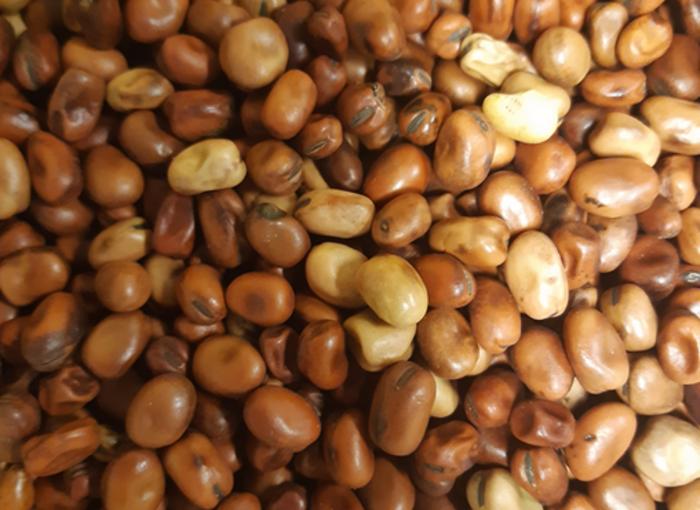A study conducted at the University of Helsinki demonstrated that the partial substitution of red and processed meat with pea- and faba bean–based food products ensured sufficient intake of amino acids in the diet and did not negatively affect bone metabolism.

Credit: Suvi Itkonen
A study conducted at the University of Helsinki demonstrated that the partial substitution of red and processed meat with pea- and faba bean–based food products ensured sufficient intake of amino acids in the diet and did not negatively affect bone metabolism.
“Decreasing the consumption of red and processed meat in the diet to the upper limit of the Planetary Health Diet while increasing the consumption of legumes cultivated in Finland, such as peas and faba beans, is safe from the perspective of protein nutrition. Similarly, bone health is not compromised by such a dietary change either,” says Docent Suvi Itkonen from the Faculty of Agriculture and Forestry.
In the BeanMan study, 102 Finnish men followed a study diet for six weeks.
- One group consumed 760 grams of red and processed meat per week, which accounted for 25% of the total protein intake. The amount corresponds to the average protein consumption of Finnish men.
- The other group consumed food products based on legumes, mainly peas and faba beans, corresponding to 20% of the total protein intake. In addition, the amount of red and processed meat consumed per week in this group amounted to the upper limit of the Planetary Health Diet (200 g or 5% of the total protein intake).
Otherwise, the study subjects followed their habitual diet but were not allowed to eat other red or processed meat or legumes than those provided by the study.
The researchers did not find any differences between the dietary groups in markers of bone formation or resorption. Neither did the intake of calcium or vitamin D differ between the groups. Calcium intake was in line with the current dietary recommendations, and the intake of vitamin D was very close to the recommendations. Mean essential amino acid and protein intakes met the recommendations in both groups.
“Reducing read meat consumption is extremely important in terms of environmental impact,” Itkonen notes.
Increasingly plant-based diets are becoming more and more popular, and the recently updated Nordic Nutrition Recommendations also emphasise the restriction of meat consumption and the moderation of dairy consumption.
“In this study, the subjects consumed dairy products as in their habitual diets, thus their calcium and vitamin D intakes were unchanged. However, in terms of bone health, it is important to bear in mind that if one reduces the amount of dairy in the diet, it is necessary to ensure the intake of calcium and vitamin D from other sources. These sources can be plant-based beverages and yoghurt-like products fortified with those nutrients or, when necessary, dietary supplements,” Itkonen points out.
Other findings in the BeanMan study related to, among others, lipid metabolism, gut health and nutrient intakes will be published later.
Leg4Life (Legumes for Sustainable Food System and Healthy Life – Palkokasveilla kohti kestävää ruokajärjestelmää ja terveyttä) is a multidisciplinary project funded by the Strategic Research Council of the Academy of Finland. Leg4Life aims to achieve a comprehensive societal change towards a healthier food system and climate neutral food production and consumption by increasing the use of legumes. There are five extensive work packages in the project that cover the whole food chain from field to dinner table, all researching legumes that thrive in Finnish boreal conditions.
Journal
British Journal Of Nutrition
DOI
10.1017/S0007114523001514
Method of Research
Randomized controlled/clinical trial
Subject of Research
People
Article Title
Effects of partial replacement of red and processed meat with non-soya legumes on bone and mineral metabolism and amino acid intakes in BeanMan randomised clinical trial
Article Publication Date
10-Jul-2023




